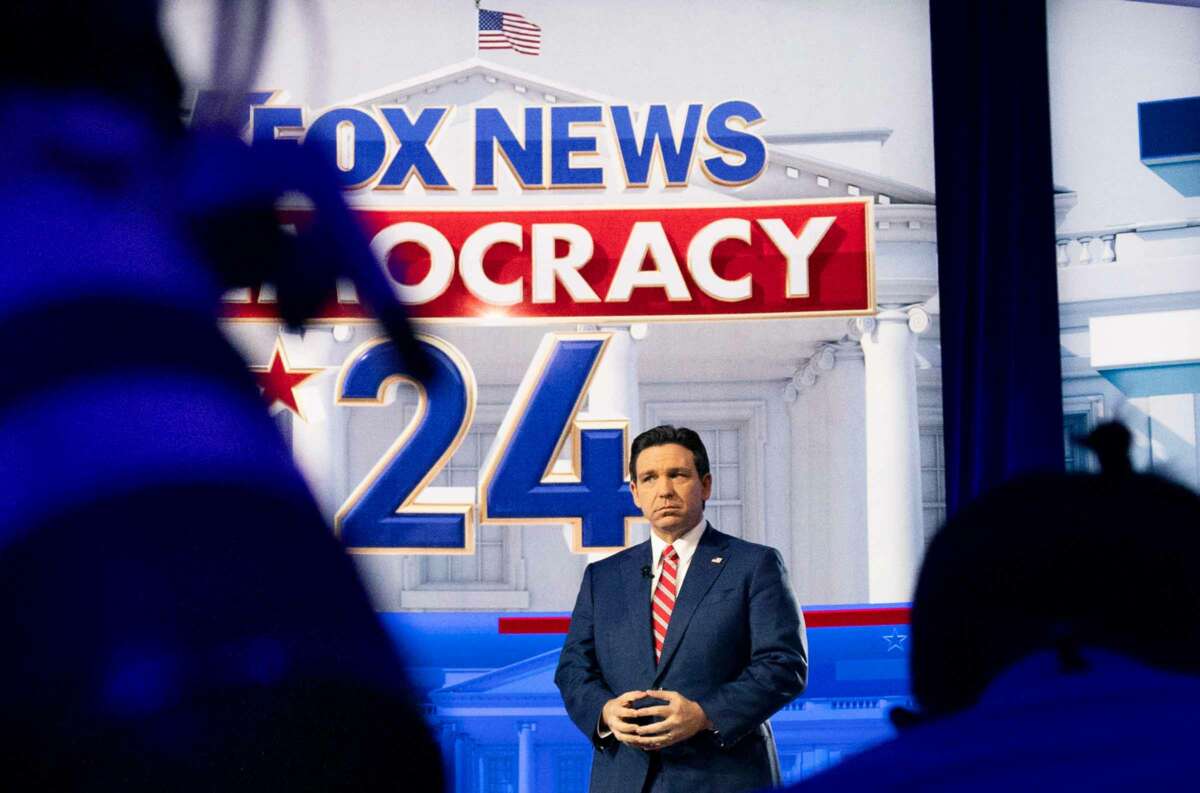Honest, paywall-free news is rare. Please support our boldly independent journalism with a donation of any size.
Dictionaries and encyclopedias are among the more than 2,800 books that a Florida school district has pulled from library shelves in an effort to comply with a law that Florida Gov. Ron DeSantis signed last year.
Judd Legum, author of the Popular Information newsletter, reported Wednesday that the Escambia County School District said the books that have been banned pending further investigation “may violate H.B. 1069,” which “gives residents the right to demand the removal of any library book that ‘depicts or describes sexual conduct,’ as defined under Florida law, whether or not the book is pornographic.”
“Rather than considering complaints, the Escambia County School Board adopted an emergency rule last June that required the district’s librarians to conduct a review of all library books and remove titles that may violate H.B. 1069,” Legum noted. “Each school in Escambia County has thousands of titles. As a result, many school libraries were closed at the beginning of the school year pending the completion of the review.”
Florida led the United States in book bans during the 2022-2023 school year, with PEN America documenting 1,972 instances of bans across 37 districts.
“In a state with approximately 70 districts, this means that over half of all Florida school districts experienced banning activity,” PEN noted in a recent report.
PEN, Penguin Random House, and a coalition of authors joined parents and students last year in filing a lawsuit against Escambia County in federal court, arguing that the mass removal of books from school libraries violates the plaintiffs’ “rights to free speech and equal protection under the law.”
A hearing in the case was scheduled to take place on Wednesday. Florida’s Republican attorney is backing Escambia’s school board.
“In a brief submitted by the state of Florida in support of Escambia, Attorney General Ashley Moody argued that the school board could ban books for any reason because the purpose of public school libraries is to ‘convey the government’s message,’ and that can be accomplished through ‘the removal of speech that the government disapproves,'” Legum noted Wednesday. “This is a novel argument about the purpose of school libraries.
In addition to Webster’s Dictionary & Thesaurus for Students and The American Heritage Children’s Dictionary, Escambia County is denying students access to biographies of former Supreme Court Justice Thurgood Marshall, the singer and songwriter Beyoncé, and talk show host Oprah Winfrey, according to a list obtained by the Florida Freedom to Read Project.
The list also includes The Diary of a Young Girl by Anne Frank.
“The Escambia County School Board banned most of these books at the request of Vicki Baggett, a high school English teacher in the county,” Legum reported. “Baggett is responsible for hundreds of challenges in Escambia County and neighboring counties.”
A terrifying moment. We appeal for your support.
In the last weeks, we have witnessed an authoritarian assault on communities in Minnesota and across the nation.
The need for truthful, grassroots reporting is urgent at this cataclysmic historical moment. Yet, Trump-aligned billionaires and other allies have taken over many legacy media outlets — the culmination of a decades-long campaign to place control of the narrative into the hands of the political right.
We refuse to let Trump’s blatant propaganda machine go unchecked. Untethered to corporate ownership or advertisers, Truthout remains fearless in our reporting and our determination to use journalism as a tool for justice.
But we need your help just to fund our basic expenses. Over 80 percent of Truthout’s funding comes from small individual donations from our community of readers, and over a third of our total budget is supported by recurring monthly donors.
Truthout has launched a fundraiser to add 379 new monthly donors in the next 6 days. Whether you can make a small monthly donation or a larger one-time gift, Truthout only works with your support.
